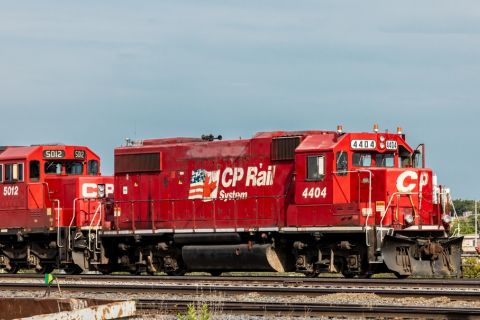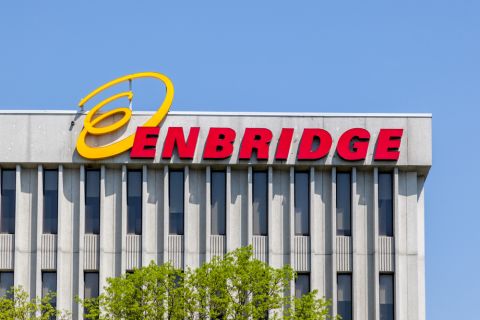
Denbury will continue to pursue EOR opportunities in the Eagle Ford Shale—although likely not another company takeout, says analysts with Capital One Securities Inc. (Source: Shutterstock.com)
Learn more about Hart Energy Conferences
Get our latest conference schedules, updates and insights straight to your inbox.
[Editor's note: This story was updated at 8:11 a.m. CST March 22.]
Denbury Resources Inc. and Penn Virginia Corp. mutually agreed to terminate their merger agreement due to difficult market conditions and shareholder opposition, the companies said separately on March 21.
The companies had entered the agreement in late October for Denbury to acquire the Houston-based operator in the Eagle Ford Shale in a cash-and-stock transaction valued at about $1.7 billion, which included associated debt. Neither company is required to bay a breakup fee as a result of the terminated merger agreement, according to analysts with Capital One Securities Inc. in a March 22 report.
Denbury, a Plano, Texas-based company focused on CO₂ EOR, currently operates in the Gulf Coast and Rocky Mountain regions. The acquisition of Penn Virginia was set to add a new core area to its portfolio in the oil window of the Eagle Ford Shale, which Denbury CEO Chris Kendall had called in October a “defining moment for Denbury.”
Following the companies decision to terminate the merger, Kendall echoed that sentiment saying the company still firmly believed in the strategic merits of the combination with Penn Virginia.
However, he also added, “the difficult market conditions since announcement, combined with the opposition of certain Penn Virginia shareholders, led us to the conclusion that the transaction was unlikely to receive the necessary supermajority approval from Penn Virginia shareholders.”
The merger between Denbury and Penn Virginia notably faced opposition from hedge fund and Penn Virginia shareholder, Mangrove Partners, which said it considered its investment in the Eagle Ford operator a compelling standalone investment in a Nov. 13 regulatory filing.
RELATED: E&Ps Defy Uncooperative Market, Continue Deal Making
In a statement on March 21, John A. Brooks, president and CEO of Penn Virginia, said the company will now focus on developing its assets and “maximizing value for our shareholders as a standalone company.”
“Given the caliber and dedication of our team, the high quality of our assets and the strength of our balance sheet, we believe we are well positioned to continue to execute our previously announced two rig development plan, which is expected to be fully funded from cash flow,” Brooks said.
Capital One analysts expect Penn Virginia could add to its planned two-rig program in 2019 due to the $200 million or more free cash flow the firm said it estimates for the company this year based on $60 oil.
As for Denbury, its CEO remains optimistic about the resource potential that CO₂ EOR could deliver in the Eagle Ford.
“We will continue to pursue practical opportunities to expand Denbury’s business, particularly in areas where our EOR expertise, experience and extensive CO₂ resources can create value for the benefit of all Denbury stakeholders,” Kendall said.
He added that Denbury will maintain a disciplined operating approach, which he expects will generate well over $100 million of free cash flow in 2019 at current oil prices, providing the company with “significant flexibility going forward.”
The analysts with Capital One see Denbury generating over $200 million in excess cash flow this year though, based on the company’s $295 million capex.
Further, the firm said it expects Denbury to pursue EOR opportunities in the Eagle Ford—although likely not another company takeout—while also possibly refocusing on accelerating the EOR development at its Cedar Creek Anticline properties in the Rockies.
Emily Patsy can be reached at epatsy@hartenergy.com.
Recommended Reading
CorEnergy Infrastructure to Reorganize in Pre-packaged Bankruptcy
2024-02-26 - CorEnergy, coming off a January sale of its MoGas and Omega pipeline and gathering systems, filed for bankruptcy protect after reaching an agreement with most of its debtors.
NGL Growth Leads Enterprise Product Partners to Strong Fourth Quarter
2024-02-02 - Enterprise Product Partners executives are still waiting to receive final federal approval to go ahead with the company’s Sea Port Terminal Project.
After Megamerger, Canadian Pacific Kansas City Rail Ends 2023 on High
2024-02-02 - After the historic merger of two railways in April, revenues reached CA$3.8B for fourth-quarter 2023.
Enbridge Advances Expansion of Permian’s Gray Oak Pipeline
2024-02-13 - In its fourth-quarter earnings call, Enbridge also said the Mainline pipeline system tolling agreement is awaiting regulatory approval from a Canadian regulatory agency.
Canadian Natural Resources Boosting Production in Oil Sands
2024-03-04 - Canadian Natural Resources will increase its quarterly dividend following record production volumes in the quarter.





